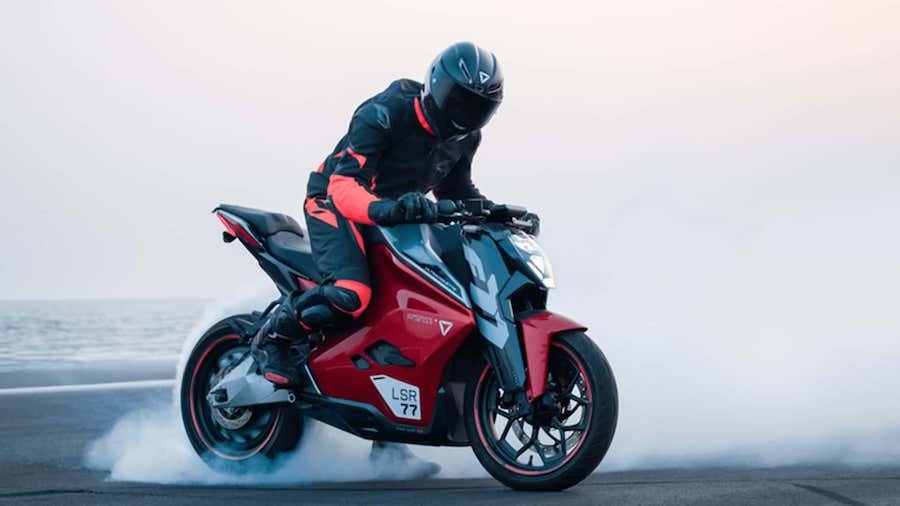India’s Ultraviolette F77 Now Has European Certification, But There’s a Problem

We’ve seen a lot of electric motorcycle companies rise, make it to the big leagues, then eventually fall. Look no further than the likes of Energica, CAKE, and Sondors, three EV motorcycle startups that seemed like they had things figured out. Ultimately, however, things didn’t go in their favor, and they’re now either dead, on the verge of being dead, or trying to figure things out under new management.
What these companies had in common was the inability to manage costs in one way or another. And while their stories are vastly different, their demise ultimately boiled down to the drying up of funds, inability to raise funds, or the need to pay some serious debt.
That said, we recently saw an EV motorcycle startup from India make it to the global scene. Ultraviolette is a company we’ve talked about quite a bit in the past, and one that recently received certification for its F77 electric motorcycle to be approved for road use in 40 different countries, chief of which would be the European Union. And while this is well and truly a good thing, I can’t help but feel like Ultraviolette has made a serious misstep—one that could lead it into some serious trouble.
But before we get into that, let’s first look at what all this means. Ultraviolette’s F77 Mach 2 recently acquired a United Nations Economic Commission for Europe (UNECE) certification. This, apparently, is a big deal, as it means that the EV motorcycle can be certified for road use in 40 countries around the world, including member countries of the European Union, as well as the good old US of A.
In the case of EU member countries, the F77 receives L3e certification, which means it’s categorized as a full-size motorcycle. And on paper, its specs are similar to that of a 300cc ICE bike.
It’s rocking an electric motor with 30 kilowatts (about 40 horsepower) of continuous output. It’s also capable of rocketing from zero to 60 kilometers per hour (37 miles per hour) in 2.8 seconds. Its zero to 100-kilometer-per-hour (62 miles per hour) sprint time, meanwhile, is a claimed 7.7 seconds—a bit slower than the likes of the Yamaha MT-03 and KTM 390 Duke.
Now, all this would have been picture perfect if Ultraviolette retained a similar pricing scheme in Europe as it did in India. For reference, the F77 Mach 2 carries a sticker price starting at Rs 299,000, or about 3,300 Euros, or $3,570 USD. And indeed, at this price, this thing’s a steal.
But after obtaining the required certifications, Ultraviolette somehow decided that it should sell the F77 Mach 2 for not twice, but thrice the price in the EU. So yes, we’re looking at a rather hefty 9,990 Euros (almost $11,000 USD) for this made-in-India EV motorcycle.
In a previous article, I wrote about how much potential this thing had, specifically given its super affordable price tag in India. I even compared it to the likes of the Can-Am Origin and Pulse EV motorcycles, and how this thing would absolutely bury the competition. And while its 10,000-Euro price tag is still significantly lower than the likes of the Can-Am Origin and LiveWire S2 Del Mar, it’s still pretty steep for what’s essentially a sporty electric toy without a proven track record in the western world.
Now, I get it. Import taxes, certification, and establishing a sales network all cost some seriously big money, and I’m sure that Ultraviolette put a whole lot of thought into making the F77 Mach 2 as affordable as they could for the EU market. But I can’t help but worry, that with today’s tightening economy, not a lot of people will have a spare $11,000 for a fancy electric toy. And it would certainly suck to see UV go the way of Sondors and Energica.
Nouvelles connexes


